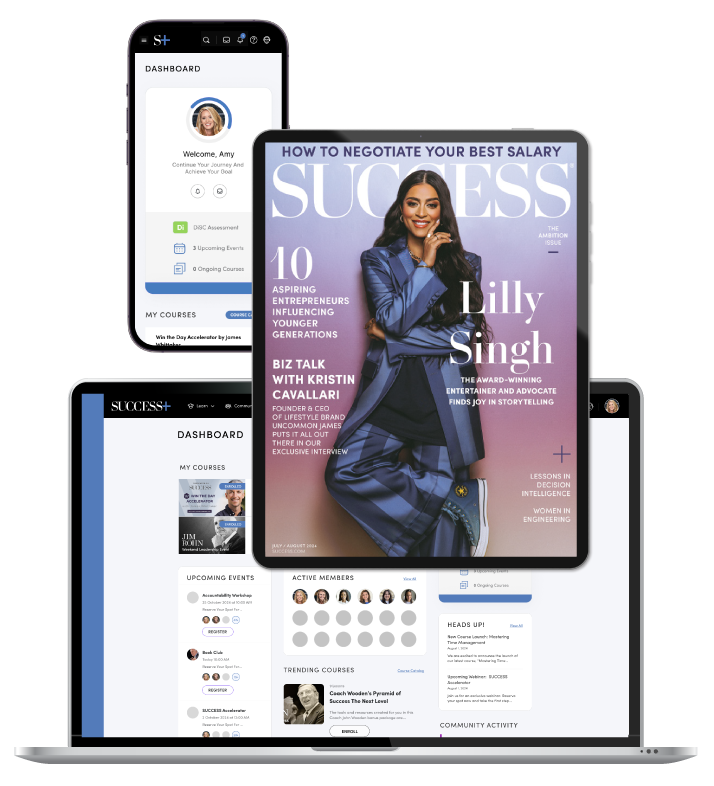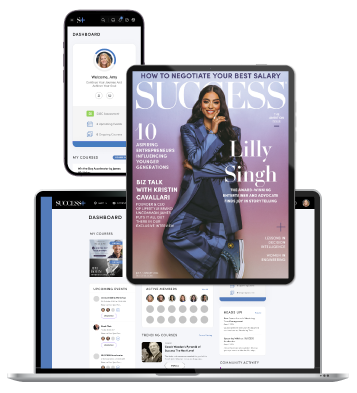Find simple, step-by-step instructions that teach you how to write an effective thank you letter after having an interview. Learn when and why to send a thank you email and use our sample emails to help you get started.
Learning how to write a thank you email after an interview can help you come across as polite and professional. It can also give you a competitive edge. It’s best to keep it brief and concise but include essential elements. The email should contain a greeting, thank you message and some specific aspects of your experience. It should also recap your interest and include a closing. Personalizing the email shows attention to detail and could help you stand out as a candidate.
You aced the interview, shook hands (or logged off the Zoom call) and now you wait—right? Not quite. There are many things you can do to prepare for your interview, but there’s one more step that could solidify your position as a standout candidate: sending a thank you email.
In today’s competitive job market, knowing how to write a thank you email after an interview can make all the difference. It’s a small gesture that leaves a lasting impression, reinforces your enthusiasm for the position and reminds the interviewer why you’re the right fit for the role.
Whether you’re just starting your career or re-entering the job market, this guide will walk you through everything you need to know about post-interview thank you emails. Discover when to send a thank you email after an interview, what to include and how to personalize it for maximum impact.
Why You Should Send a Thank You Email After an Interview
Many job seekers wonder, “Should I send a thank you email after an interview?” The answer is a resounding yes.
There are lots of do’s and don’ts when it comes to interviews, but sending a thank you email is a definite ‘do.’ Sending a follow-up email after an interview shows professionalism and gratitude while also showing self-awareness. It gives you a final opportunity to:
- Express appreciation for the interviewer’s time
- Reiterate your interest in the position
- Highlight key qualifications or clarify anything you wish you had said better
- Stand out among candidates who don’t follow up
According to career experts, hiring managers often consider thank you notes when making final decisions. It’s a subtle but effective way to reinforce your candidacy.
When to Send a Thank You Email After an Interview
You know why you should send the email, but does it matter when you send it? The short answer is yes. Let’s get into a few details.
- Timing is crucial. The best time to send your thank you email is within 24 hours of your interview—ideally on the same day. If your interview is late on a Friday or right before a holiday, send it the next morning or on the next business day to avoid it getting buried in a weekend inbox.
- Avoid waiting too long. Delays can signal disinterest or lack of urgency. A prompt email shows you’re serious and courteous.
What to Include in Your Thank You Email
Wondering what makes a great post-interview thank you email? Here’s a simple structure to follow:
1. Clear Subject Line
Your post-interview thank you email subject line should be clear and professional. For example:
- “Thank you – [Your Name]”
- “Thank you for the opportunity”
- “Great speaking with you today”
2. Personalized Greeting
Address your interviewer by name. Use “Dear [First Name]” unless the company culture calls for more formality.
Quick tip: If you are interviewed by a panel, make sure to include all of their names in the email. If you interviewed with a group but there was one main interviewer, make the greeting specific to the interviewer. Acknowledge the group dynamic within the email.
3. Thank the Interviewer
Start your message by genuinely thanking the interviewer for their time and the opportunity to speak with them. This shows respect and professionalism and sets a positive tone for the rest of the email.
- Be sincere and specific. Avoid overly generic statements like “Thanks for your time.”
- Mention the role title to remind them of which position you interviewed for.
4. Mention Something Specific From the Interview
This is where you personalize your email and show that you were engaged in the conversation. Mention a detail you discussed—like a specific project, a company value, a shared interest or an insight the interviewer offered.
5. Reiterate Interest in the Position
After showing appreciation and recalling a specific detail, reaffirm your enthusiasm for the role. This reminds the interviewer that you’re both a qualified and motivated candidate.
You can also include a prompt to take the next step, such as a follow-up interview or reaching out regarding any clarifications about your skills and experience.
6. Professional Closing
Wrap up the email professionally. Let them know you’re available for any follow-up questions and close with a courteous sign-off.
- Include your full name and optionally your contact details or LinkedIn profile.
- Use a polite, professional sign-off such as “Best regards,” “Sincerely,” or “Warmest thanks.”
How to Personalize Your Thank You Message
Generic thank you notes fall flat. A personalized message reflects genuine interest and effort. Here’s how to stand out when sending your after-interview thank you email:
- Mention a shared interest or inside joke or recount a thoughtful comment they made.
- Highlight a specific project or company value that excites you.
- Readdress a question you felt you could have answered better.
- Tailor the tone to match the company culture (formal vs. casual).
The goal is to make the recipient feel like you truly valued the interaction—not like you’re copying and pasting from a template.
Quick tip: If you were referred to the position by another person, mention the name of the person that referred you in the email as well.
Sample Thank You Email After an Interview
Here are two interview thank you email examples to help guide you:
Example 1: Standard Thank You Email
Subject: Thank you – [Your Name]
Dear [Interviewer’s Name],
Thank you so much for taking the time to speak with me today about the [Job Title] role at [Company Name]. I really enjoyed our conversation, especially learning more about the upcoming [specific project or initiative].
Our discussion reinforced my excitement about joining a team that values [a company value or goal you discussed], and I believe my experience in [relevant skill or area] would allow me to contribute meaningfully.
Please don’t hesitate to reach out if you need any additional information. Thank you again for the opportunity.
Best regards,
[Your Name]
[Phone number]
[LinkedIn profile or portfolio, optional]
Example 2: Casual/Startup Environment
Subject: Thanks again!
Hi [Interviewer’s First Name],
I really appreciated our chat today—it was great learning about your team and what’s next for [Company Name]. The conversation about [specific topic] really stuck with me, and I’m even more excited about the possibility of being part of it.
Let me know if there’s anything else I can provide. Thanks again for your time and insights!
Best,
[Your Name]
Final Thoughts on Following Up After the Interview
There are many things that can lead to nailing or bombing the interview, but you can’t go wrong by saying thank you. Sending a thoughtful, well-timed thank you email after an interview isn’t just a polite gesture—it’s a strategic move. It shows initiative and attention to detail, plus a real appreciation for the opportunity.
Remember to keep your message genuine, concise and personalized. Whether you’re applying to a large corporation or a small startup, taking a few minutes to say thank you is important. It’s one of the ways that can help you potentially secure your position and leave a lasting impression.
Photo from Dragana Gordic/Shutterstock.com











